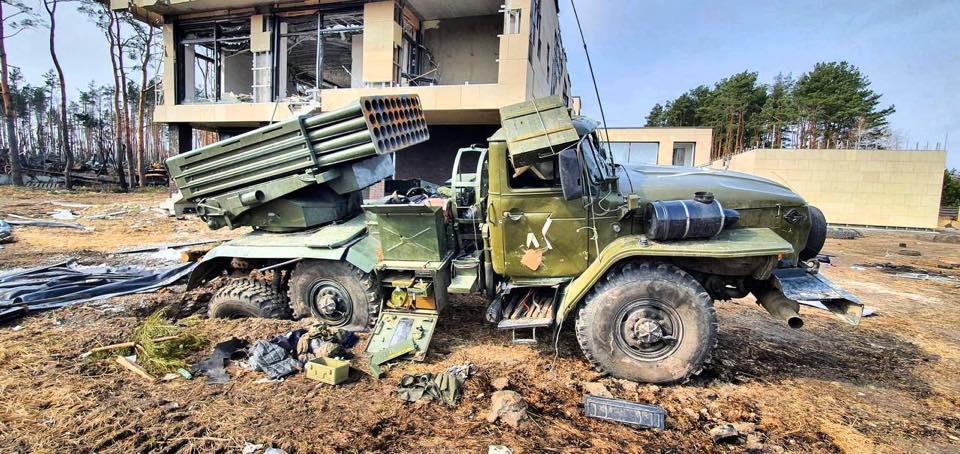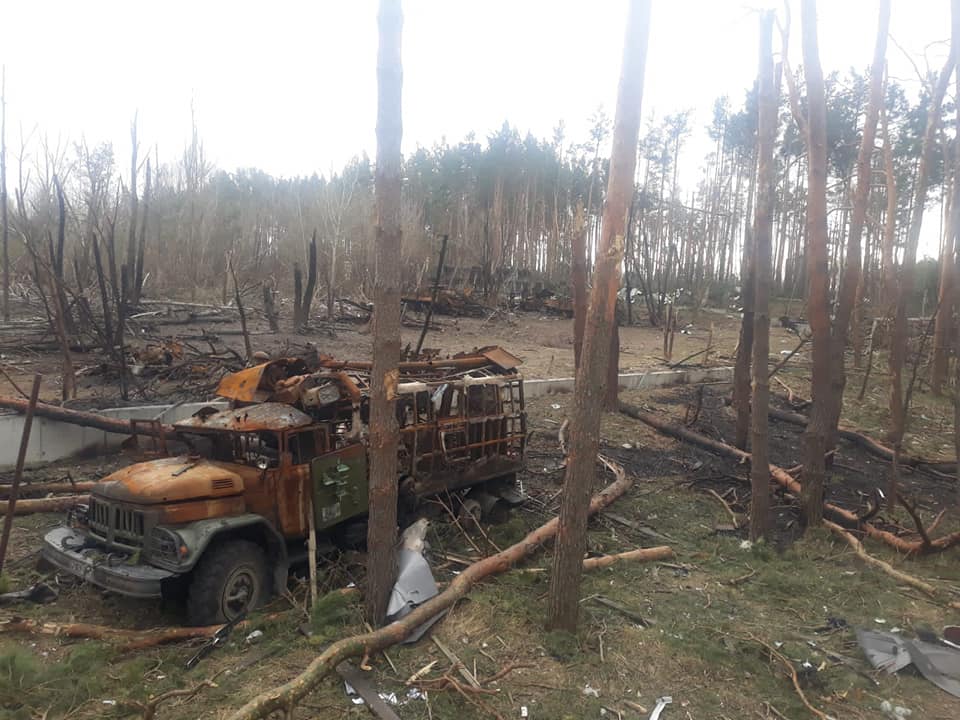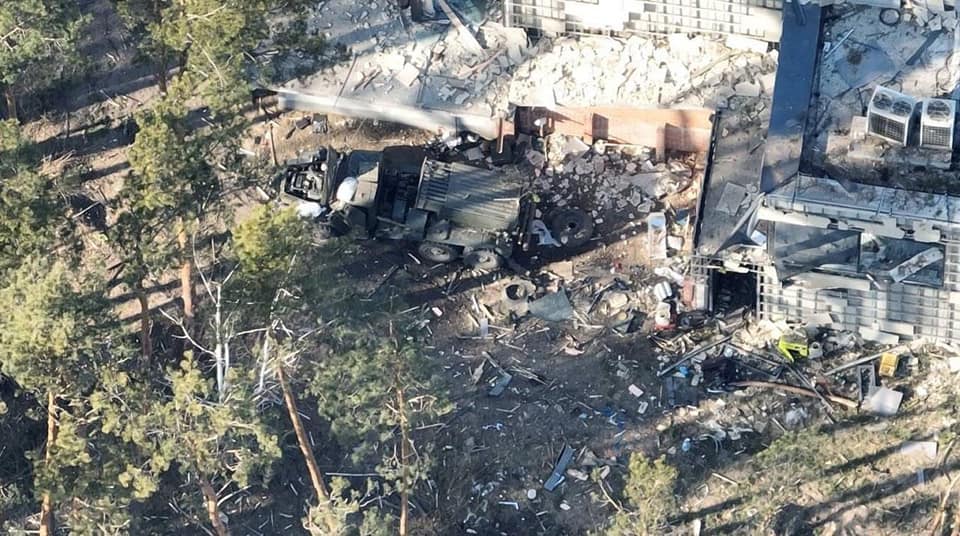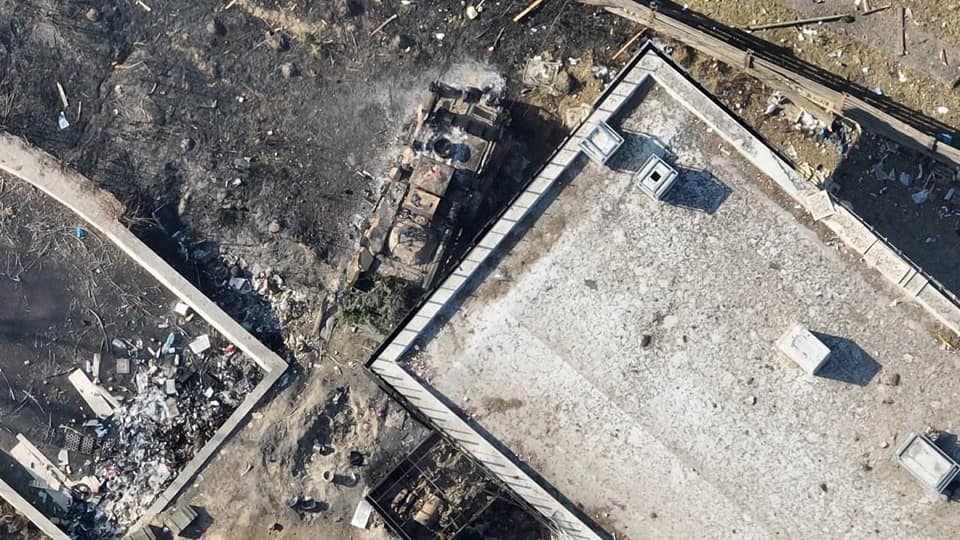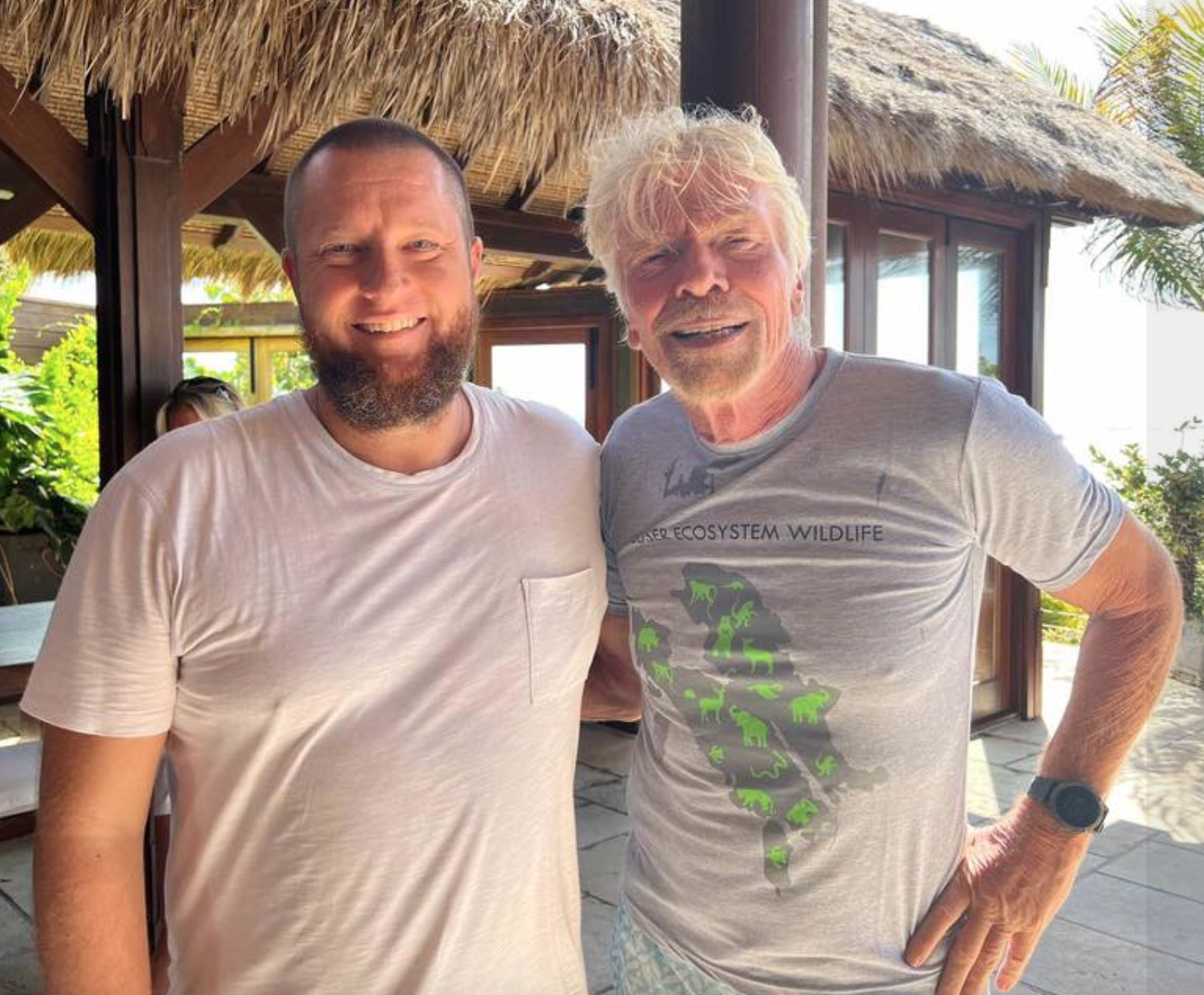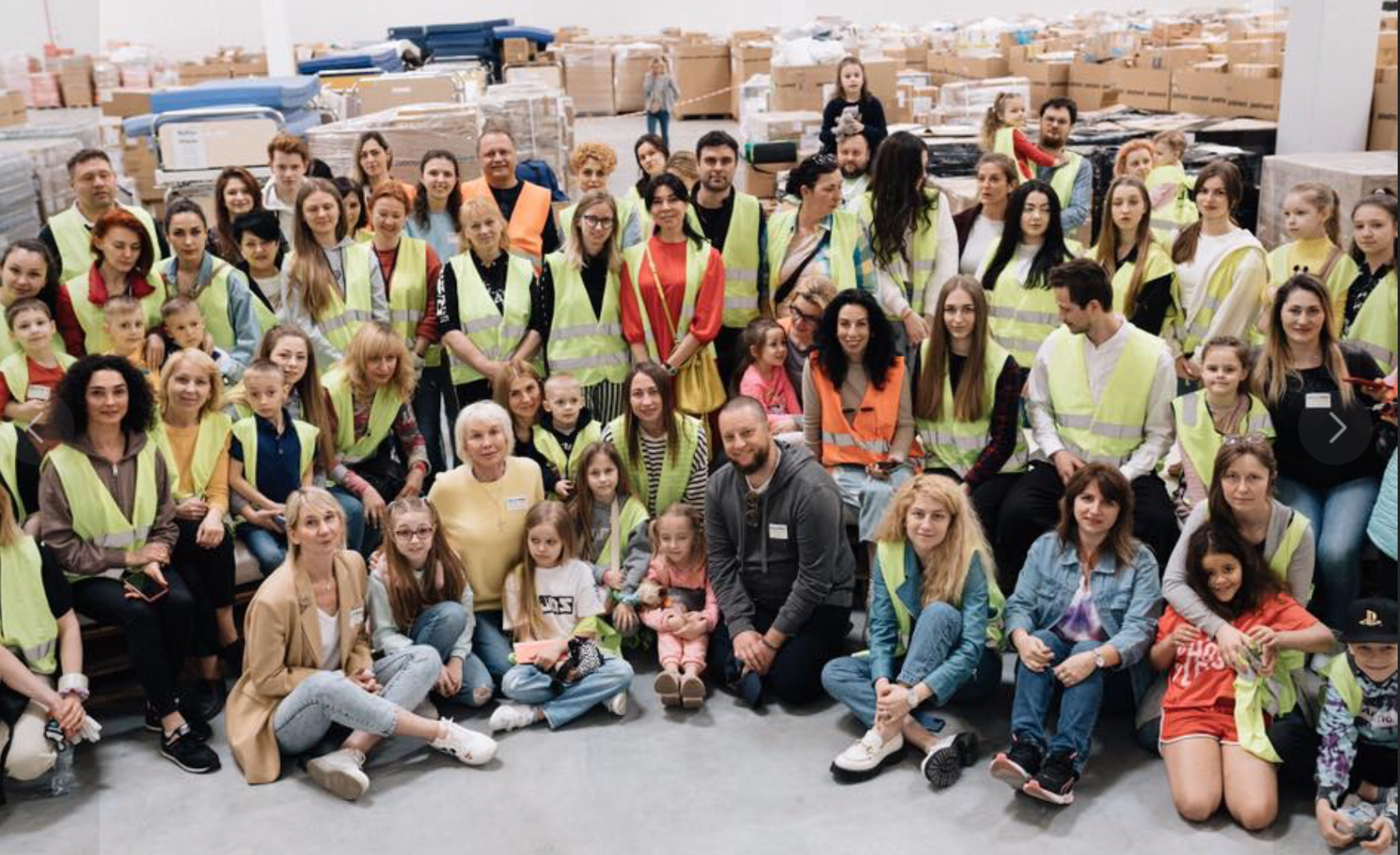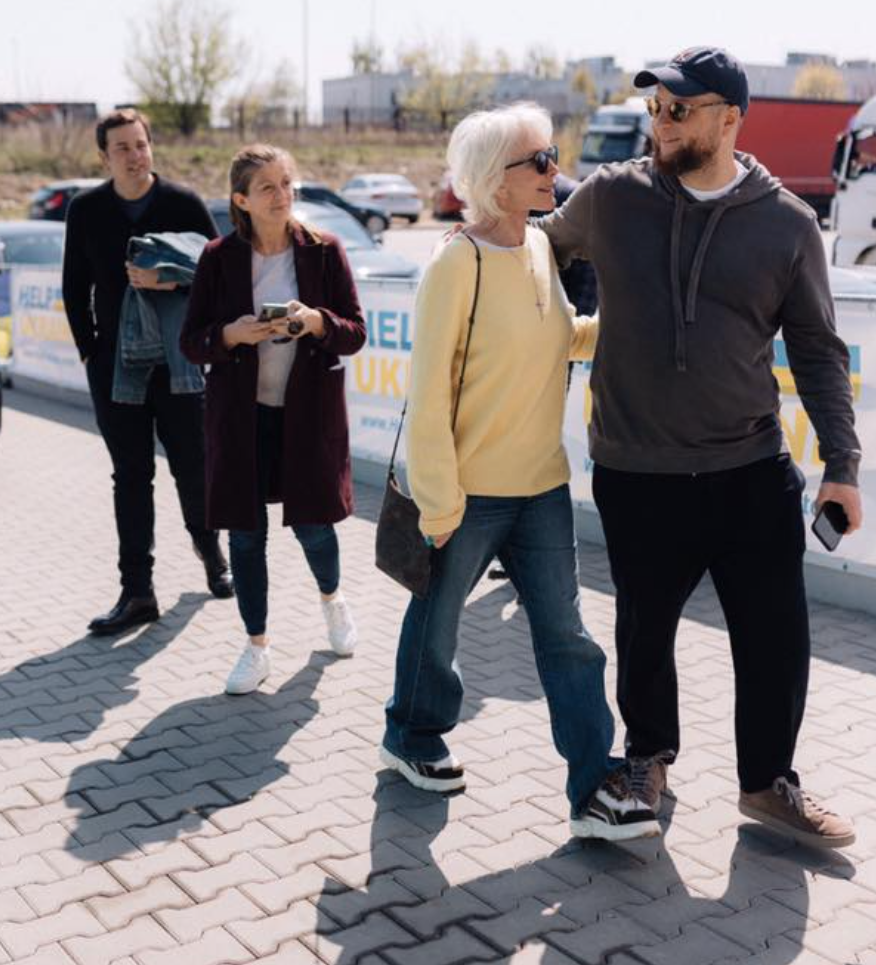On April 8, when he saw an enemy in his house, he targeted fire on him. “We have data: you’re looking at your house webcam, and in the yard Russian soldiers are deploying 12 units of combat equipment, including MLRS, Tornado-G, and Grads. Your house location makes it ideal for targeting Kyiv. That’s what they came for.” Question: how long will it take the AFU to open annihilating fire from the moment I tell them the exact coordinates of my home? I will rebuild the house, we will rebuild the country. The main thing is to save as many lives as possible. And stop praising me, because the real heroes of this and other similar stories are only the AFU,” commented Andriy Stavnitser, co-owner of the TIS port and one of the most famous Ukrainian businessmen.
He was born in the Caucasus to a Jewish family, grew up in nationally and religiously diverse Odesa, studied in Europe and the USA, and lived in different countries. He always respected cosmopolitanism, considered multiculturalism a strength rather than a weakness, accepted local customs in any part of the world instead of imposing his own. Now he says that he has never been so proud of his passport, always believing that you should be proud of your achievements, not your nationality: “At the terrible price of saving me, in particular, from ‘nationalism’, Russia has achieved the complete opposite – never before have I been such a devoted and ardent Ukrainian. Never before, neither in 2004 nor in 2014, have I seen such enthusiasm.”
© facebook.com/stavnitser
One of the bursts of this energy was setting up the Help Ukraine Center, the largest logistical hub for humanitarian aid in Eastern Europe. Rozetka founder Vladyslav Chechetkin and Nova Poshta co-founder Volodymyr Popereshniuk were the first to stand by Andriy.
On the third day of the war, Stavnitser announced that he had bought a warehouse in Chelm. “And I’m going to buy more. We’ll buy whatever we need. Help us,” he said briefly and succinctly at the FBN Ukraine Zoom conference.
Few of those present realized what kind of war we were entering. Few could clearly understand their tasks, other than their own survival. But Andriy made us think differently, not only search for news bulletins from the hot spots of war.
“Right on the first night of the war, it occurred to me that logistics was such a weak link that would collapse immediately. But I knew how to save the situation, my professional experience had taught me. On the morning of the first day of the war, I already knew what to do. Although, at first, explosions and shelling of the entire Ukraine knocked me out of the process of establishing contacts and finding the first warehouse,” Stavnitser recalls.
In the beginning, the center took on personal cargoes but very quickly it simply choked with that work. Everyone involved answered in a “yes, no, I don’t know” style.
My good friend from Aspen Group, manager of the Olena Pinchuk Foundation, Olha Rudnyeva, who had been on a business trip to a conference abroad before the war, came to Chelm on March 5 and joined the center’s activity.
On March 15, Olha posted an appeal on her FB page: “Ukraine, dear defenders, doctors, drivers, volunteers, people! Please hear us – we do not distribute humanitarian cargo. It is impossible, illegal and unfair. It would mean that aid randomly gets to a place, where a chain of random circumstances leads it… There is the AFU, there is the Ministry of Health, there is the Ministry of Social Policy. They are in the thick, they know all the information, they are in touch with the regions. We’ve opened warehouses, set up and optimized logistics, we’re communicating information on our resources to the whole world so they know where to take them. We attract humanitarian and medical aid from all over the world and guarantee its safety on the way to Ukraine. We sort, label, package, and wrap tons of cargo – mainly by the hands of female volunteers who were able to get to Poland. We process it, deliver it to Ukraine, and pass it on to responsible parties. Then it is their job.”
On March 1, the first shipment passed through the Help Ukraine Center. It was humanitarian aid – 2 tons, 1 vehicle and 12 pallets. Everything was unloaded by hand. Andriy participated too.
The amount of aid increased daily. In just 4 days – March 16 to 20 – the Ministry for Reintegration of the Temporarily Occupied Territories distributed 23 humanitarian trucks among 15 regions of Ukraine: men’s, kids’ and women’s clothing, hygiene products and household goods. The aid, which came from the Help Ukraine Center, was delivered to the Mykolayiv, Chernivtsi, Vinnytsia, Kyiv, Odesa, Ternopil, Cherkasy, Kharkiv, Kirovohrad, Zhytomyr, Poltava, Sumy, Khmelnytskyi regions, Kyiv, and the Lviv regional organization of the Ukrainian Red Cross.
As of August 1, 2022, this project already includes a network of 15 logistics warehouses in Europe: numerous warehouses in Chelm, the main site in Lublin, “Southern Corridor-warehouse” in the Romanian town of Khushi. Further, the cargo route is to Odesa and other Ukrainian cities. More than 200 volunteers and a team of a dozen people are involved in the process.
The composition of the center founders also increased. Among them are Volodymyr Kostelman, Natalya Fuklyeva, Ksenia Yefremova, Ivan Ivanenko, Anton Pyatyhin, Olha Balytska.
Warehouse facilities and logistics are provided by Rozetka, Nova Poshta, Ukrposhta. All other partners help in whatever way they can – with funds, communication, ideas, and formalization of bureaucratic procedures, which only increased rather than disappeared with the outbreak of the war.
80-90% of humanitarian aid comes to the center’s warehouses as a donation. The other 10 to 20% are funds directly from benefactors and partners. This was also a challenge, because there was no account to which the money would be transferred. And then one more member of FBN Ukraine, Borys Tatiyevskyi, co-owner of the Bisol company, found a way out. “In the West, no one will trust the new little-known fund, even during the war. And working with local European funds will reduce taxes,” Borys Tatiyevskyi said. In the third week of the war, we managed to attract a German charity fund with a good 12-year reputation – the Ernst Prost Foundation, through which funds were transferred for urgent purchases for tactical medicine.
From March 1 to April 24, a total of 400 vehicles (338 trucks, 62 vans), 10,245 pallets, and 3,870 tons of humanitarian goods arrived at the center’s warehouses. According to the center’s statistics, the following types of humanitarian goods prevail: food and beverages, medicines, hygiene products. The center does not collect clothes, because sorting takes too many human hands. Poland, France, Germany and Great Britain provide the most assistance. Although we can talk about a whole world of contacts for help. In May, the center received a shipment from volunteers from the island of Guam, north of Australia.
Andriy Stavnitser, project partners and Olha Rudnyeva used all their numerous contacts with the world for this help. Singer Sting and his wife Trudie became one of the first celebrity benefactors of the center. On May 3, Andriy Stavnitser wrote on his FB: “Trudie Styler, film director, UN ambassador, activist of many human rights and environmental projects, and wife of the legendary singer Sting. How fortunate we are that they noticed our Help Ukraine Center and began to support us. So I was lucky to get to know them better. The other day, Trudie came to Lublin. She immediately decided that it was important for her to talk to the displaced people, to have an idea what it feels like to be in their shoes and thus understand how she could help as effectively as possible. She asked a lot of questions to every Ukrainian family we met these days, and wrote down their answers. Of course, everyone cried. Trudie watched our warehouse work. She told the volunteers that she had never seen so much courage, that she was impressed by our indomitable desire to act. ‘What is happening now in Ukraine is the worst thing that can happen in the life of any person. These days I have not seen a single person who just sat and cried. You all talk only about interaction, you all want to work, to help, to return home sooner. I am delighted with you.’ Trudie said that she had told her husband the same thing, and that he was also delighted. She went home with lipstick marks on her face – one of our girls kissed her goodbye and Trudy didn’t want to wipe it off.”
In July, Andriy Stavnitser met with the legendary businessman Richard Branson. I quote Andriy’s FB post again: “Richard turned 72 the other day. He is in great shape, incredibly friendly and open, takes personal care of all his guests and wins tennis matches even with 25-year-old pros. There are neither signs of luxury, nor palaces, nor or Rolls Royces on his incredibly beautiful island. I heard Branson on the phone with someone from Ukraine. He helps ten times more than he talks about it. We have outlined several joint projects, which I will be able to talk about only when they begin to be implemented. Among Branson’s guests that day were not only impact investors, but also big, serious businessmen; many of them immediately offered their help in various areas of current Ukrainian realities.”
Last year, long before the russian invasion of Ukraine, Andriy Stavnitser wrote about where he sees himself in 10 years: “I would like to sit on a crowded plane, which goes on the second circle over Kyiv or Odesa before landing, because there are many other planes. A queue of planes from all over the world that brought tourists, investors, and businessmen to Ukraine.”
What he and his associates are doing today is one of the steps towards this dream.
Larysa Mudrak
14.08.2022
Photos from Andriy Stavnitser’s FB page and Ihor Tyshenka’s photos


